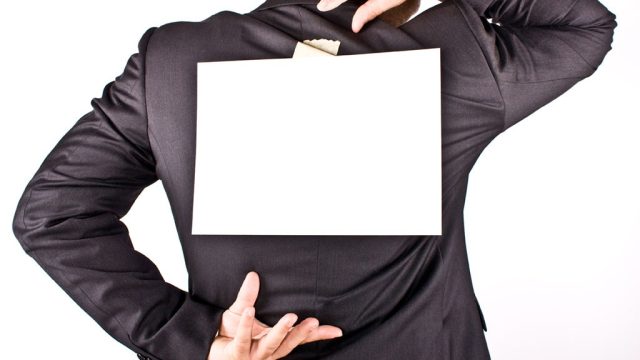Where Did “April Fools’ Day” Actually Come From?

Is there a stranger holiday than April Fools’ Day? Every year, on April 1st, it’s universally accepted that it’s open season for pranks and bold-faced lies, and only suckers believe anything they read or hear. It’s become an annual tradition because… why exactly? Nobody seems to have any idea.
Interestingly, nobody has had any idea for centuries. The question was first officially posed (at least in print) all the way back in 1708, when somebody wrote to the British Apollo magazine and asked, “Whence proceeds the custom of making April Fools?” The answer, at least according to the British Apollo historians, had something to do with ancient Romans not getting enough sex, so they advertised a fake athletic event, and when tourists from neighboring countries showed up, they “seized upon a great number of (their) virgins and ravished them.”
Worst. April Fools’ Day prank. Ever.
That’s just one of many possible theories. Another possibility is that France invented April Fools’ Day. In 1564, King Charles IX passed an edict that completely rejiggered the French calendar, moving the first day of the year from April 1st (when it was traditionally celebrated) to January 1st. Not everybody got the memo, and the confused knuckleheads who continued to think the year began in April were openly mocked, sometimes with paper fish attached to their backs. They were called “poisson d’avril” (April fish), a reference to young, inexperienced fish that are easily caught. (This may also be the origins of the classic “kick me” sign-on-the-back gag that some pranksters enjoy during the April Fools season.)
There’s one problem with the calendar switcheroo explanation, says Alex Boese, the head curator at the Museum of Hoaxes. “The old French calendar started on Easter, not April 1st,” he says. “Also, we have a clear reference to the celebration of April Fools’ Day in a Dutch poem published in 1561.” Which means we have to go a little further back in history for an answer.
In Geoffrey Chaucer’s Nun’s Priest’s Tale, a narrative poem from 1392 which tells the story of a rooster and fox making fools of each other, there’s line that suggests the events of the book took place “syn March bigan, thritty dayes and two.” There are two ways of interpreting this, says Simon J. Bronner, a professor of American Studies and Folklore at Penn State. “It could be a roundabout, repetitive way of saying the story takes place on April 1, because 32 days have passed since March began,” he says. “However, it’s also possible these lines indicate a date of April 2nd. After all, if 32 days ‘havepassed’ since March began, that would land us on the 2nd, not the 1st. The precise meaning is ambiguous.”
Whatever the actual origins, April Fools’ Day as we know it today—with all the practical jokes and tongue-in-cheek fabrications—didn’t really start to take hold until the 20th century, as newspapers and other media started to embrace the holiday. From a 1905 story by German newspaper The Berliner Tageblatt that insisted thieves had tunneled into the U.S. Federal Treasury and stolen everything, to a 1957 BBC report on Switzerland spaghetti farming, to Taco Bell’s 1996 announcement that they would buy and rebrand the Liberty Bell, April Fools’ became the day we all begrudgingly recognize as a thing not because of friends and family trying to fool each other, but because it’s the one day of the year the media delights in being blatantly untrustworthy.
“I know what you’re thinking,” says Bronner. “So that’s the origin of fake news!”
For more amazing advice for living smarter, looking better, feeling younger, and playing harder, follow us on Facebook now!